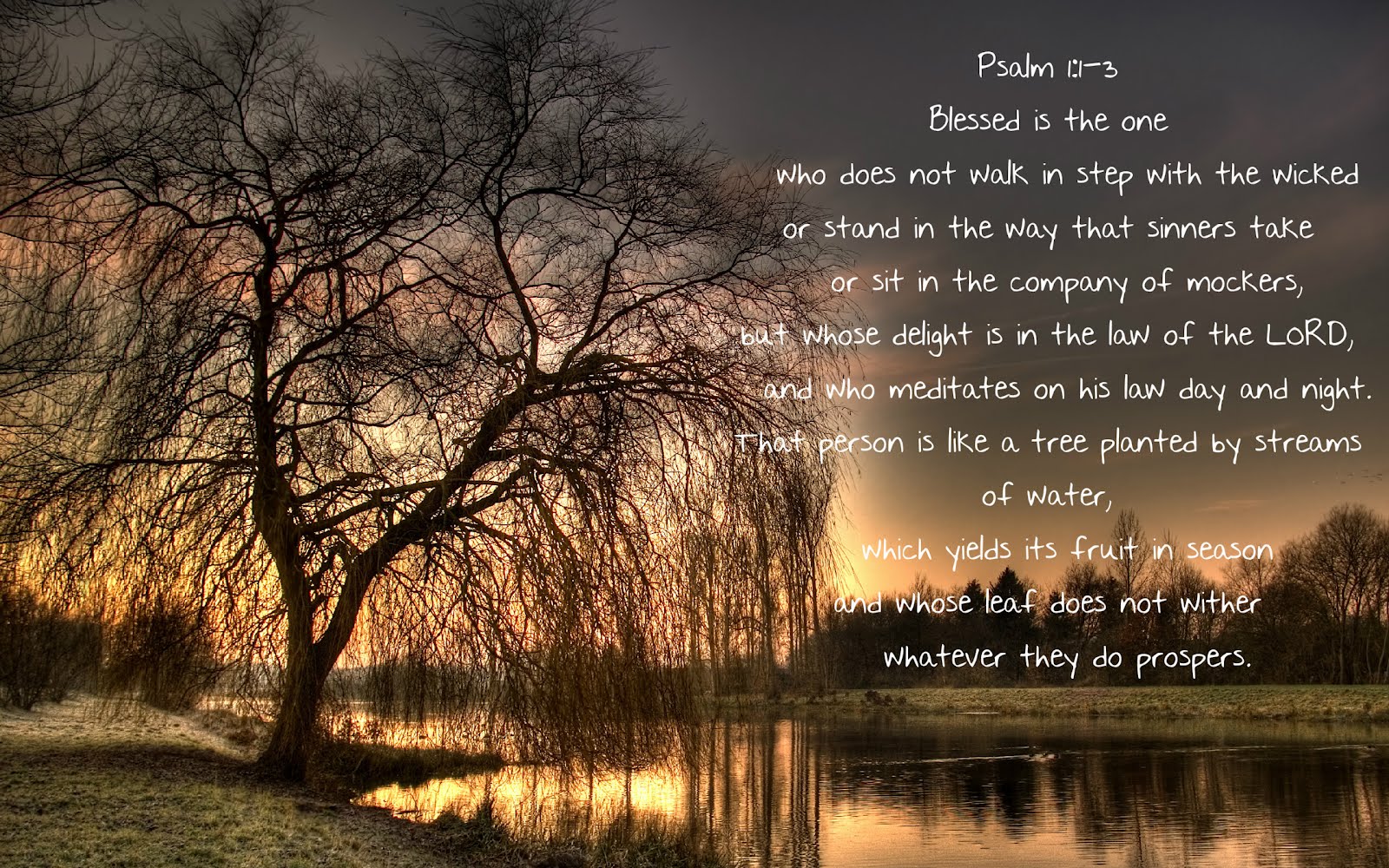Embracing Righteousness - A Comprehensive Study Of Psalm 1
Dive into our comprehensive study of Psalm 1, exploring themes of righteousness and wisdom. Learn how to embrace a righteous path through this insightful guide.
Author:Callum FraserJun 26, 20241.9K Shares241.4K Views

Psalm 1serves as the gateway to the entire Book of Psalms, setting the stage with its profound teachings on the path of righteousness versus the way of wickedness. This timeless piece of wisdom literature holds invaluable lessons for spiritual growth and moral guidance. In this comprehensive study, we will delve deep into the meaning, themes, and practical applications of Psalm 1, ensuring a thorough understanding of its significance.
The Text Of Psalm 1
To fully appreciate the depth of Psalm 1, let's begin by examining the text itself:
"1 Blessed is the man who does not walk in the counsel of the wicked or stand in the way of sinners or sit in the seat of mockers.2 But his delight is in the law of the Lord, and on his law he meditates day and night.3 He is like a tree planted by streams of water, which yields its fruit in season and whose leaf does not wither. Whatever he does prospers.4 Not so the wicked! They are like chaff that the wind blows away.5 Therefore the wicked will not stand in the judgment, nor sinners in the assembly of the righteous.6 For the Lord watches over the way of the righteous, but the way of the wicked will perish."
Analyzing The Structure Of Psalm 1
Psalm 1 is structured in a way that contrasts the life of the righteous with that of the wicked, using vivid imagery and straightforward language to deliver its message.
Verses 1-3: The Path Of The Righteous
- Blessedness of Avoiding Evil Counsel (Verse 1)
- Delighting in the Law of the Lord (Verse 2)
- The Prosperity of the Righteous (Verse 3)
Verses 4-6: The Fate Of The Wicked
- The Worthlessness of the Wicked (Verse 4)
- Judgment and Separation (Verse 5)
- Divine Oversight (Verse 6)
Themes And Interpretations
The Contrast Between Righteousness And Wickedness
Psalm 1 clearly delineates two distinct paths: one of righteousness and one of wickedness. This contrast serves as a foundational theme, guiding readers toward making moral choices that align with divine wisdom.
The Importance Of God's Law
The psalm underscores the significance of meditating on and delighting in God's law. This focus on the law suggests that true happiness and prosperity come from a life aligned with God's teachings.
The Imagery Of The Tree And Chaff
The imagery used in Psalm 1 is powerful:
- Tree by Streams of Water: Symbolizes a life sustained by spiritual nourishment, leading to growth and productivity.
- Chaff: Represents the futile and transient nature of the wicked, easily swept away by the slightest breeze.
Practical Applications
Avoiding Negative Influences
Psalm 1 encourages readers to be mindful of the company they keep and the advice they follow. Surrounding oneself with positive, godly influences is crucial for spiritual growth.
Consistent Meditation On Scripture
Delighting in and meditating on God's word is emphasized as a daily practice. Incorporating regular Bible study and reflection into one's routine can lead to deeper spiritual insight and strength.
Trusting In God's Protection
Believing in God's oversight and care for the righteous offers comfort and assurance. This trust can help individuals navigate life's challenges with confidence and hope.
FAQs About Psalm1
What Does "blessed" Mean In The Context Of Psalm 1?
In Psalm 1, "blessed" refers to a state of happiness and well-being that comes from living in accordance with God's will. It implies not just material prosperity but a deeper, spiritual fulfillment.
Why Is The Law Of The Lord So Important In Psalm 1?
The law of the Lord represents God's instructions and commandments. Meditating on it signifies a commitment to understanding and living by divine principles, which is seen as the path to true happiness and success.
What Is The Significance Of The Tree Imagery In Psalm 1?
The tree symbolizes stability, growth, and productivity. A tree planted by streams of water receives constant nourishment, just as a person who delights in God's law is continually nourished by spiritual wisdom.
How Can Psalm 1 Be Applied To Modern Life?
Psalm 1's teachings are timeless and can be applied to modern life by:
- Choosing positive influences and avoiding negative ones.
- Regularly engaging with and reflecting on spiritual texts.
- Trusting in divine guidance and protection.
What Is The Ultimate Fate Of The Wicked According To Psalm 1?
According to Psalm 1, the wicked are compared to chaff that the wind blows away, indicating their lack of substance and permanence. They will not stand in the judgment and will ultimately perish.
Conclusion
Psalm 1 provides a clear and compelling guide to living a life of righteousness. By avoiding negative influences, delighting in God's law, and trusting in divine protection, individuals can achieve true happiness and spiritual prosperity. This psalm serves as a timeless reminder of the importance of aligning one's life with divine wisdom and the ultimate consequences of one's choices.

Callum Fraser
Author
Callum Fraser isn't just a writer about Scotland; he's a product of its rugged landscape and rich history. Born and raised in Perthshire, with the Highlands as his backyard, his love for the nation's stories was kindled by local storytellers and long walks through ancient glens.
This passion led him to pursue a degree in Scottish History from the University of Edinburgh. For over 15 years, Callum has dedicated himself to exploring and documenting his homeland, fusing his academic knowledge with essential, on-the-ground experience gained from charting road trips through the Cairngorms, hiking the misty Cuillins of Skye, and uncovering the secrets of traditional recipes in his family's kitchen.
As the Editor-in-Chief and Lead Author for Scotland's Enchanting Kingdom, Callum's mission is simple: to be your most trusted guide. He combines meticulous research with a storyteller's heart to help you discover the authentic magic of Scotland — from its best-kept travel secrets to its most cherished traditional recipes.
Latest Articles
Popular Articles